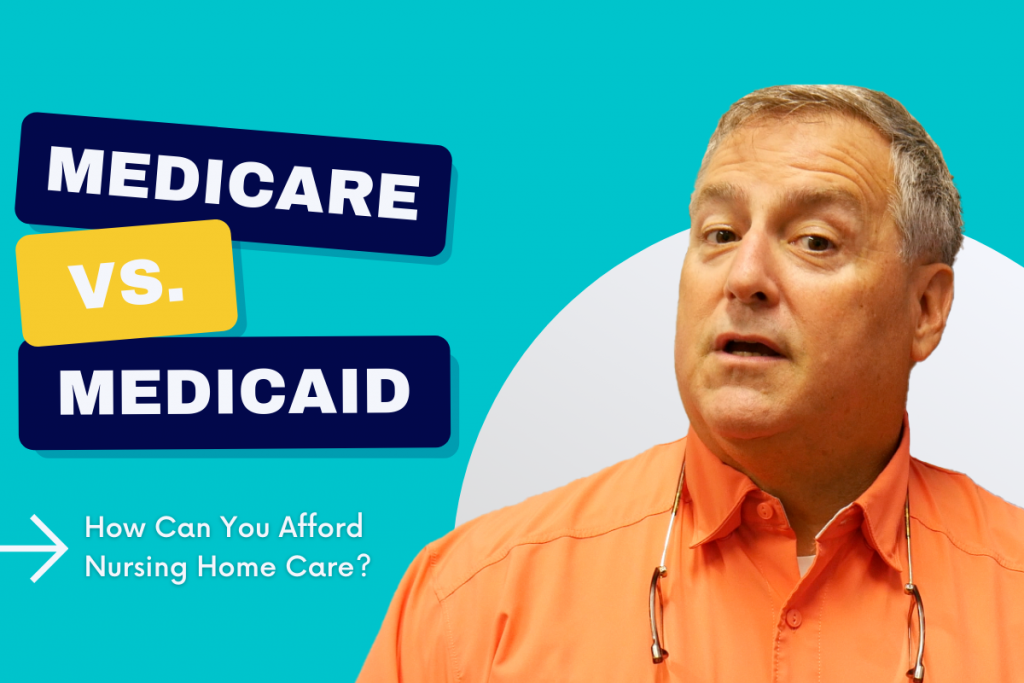What is the difference between Medicare and Medicaid as it relates to protecting your assets and paying for long-term care expenses?
Medicare is like medical insurance. If you’re on Medicare and you go into the hospital for a heart attack, hip replacement, or some other medical need that’s curable, then Medicare picks up that bill. Medicare won’t pay for 100% of those expenses, but they will pay for most of it. And hopefully you also have some type of supplemental insurance to go along with the Medicare coverage. Medicare is very limited as to what they will pay when it comes to long-term care.
If Medicare doesn’t pay for long-term care, who does pay for it? Well, you’re either going to pay for it from your existing assets and income or maybe through a long-term care insurance policy that you have. If you’re a veteran or the spouse of a veteran, you may have some VA benefits that will help pay for your long-term care. Those VA benefits certainly help, but they’re not going to pay 100% of the nursing home costs.
So if you don’t have the assets or you’re trying to protect those assets from the nursing home, who pays for your long-term care?
MEDICAID!
Medicaid is a Federal government program that is administered by each state — the State of Georgia, the State of Florida, or whatever state you’re located. Each state has their own set of eligibility criteria. For example, your income can’t exceed a certain amount or you will be ineligible for Medicaid.
But if your income does exceed that amount, don’t worry about it. There is a specific type of trust that we can create that will allow you to be eligible for Medicaid. If your spouse is in a nursing home, don’t worry. We can get your spouse qualified for Medicaid while protecting you and your assets at home. We want you to be in a good position so you can take care of your spouse.
There are also asset limits that will affect your eligibility for Medicaid. As is the case with the income limits, there are also exceptions to the asset limits that can be used to improve your changes of qualifying for Medicaid. Most people think that an IRA or 401k is an asset that is counted against them, but that’s not necessarily true. The required minimum distributions that you may be taking are counted against the income requirements, but the asset itself is not counted against you. This is the case in the State of Georgia, but this is not true for all states.
Protecting Your Assets — WE CAN HELP!
We help you with protecting your assets and planning for long-term care. We help structure your assets so that you still get to enjoy them, but at the same time minimize the exposure of having to spend all those assets on nursing home care for you or your spouse. The eligibility rules are constantly changing and we work hard to stay updated on any changes that could affect you and your family.
We have several helpful documents regarding nursing home care, qualifying for Medicaid, protecting your assets, and creating a successful roadmap for your heirs. We’ll be glad to send you any of these documents so you can use them as a reference for your family. Just send us an email to [email protected] and we’ll be glad to send them to you.
We’re glad to help however we can. If you have any questions regarding qualifications as it relates to your specific assets, please send us an email at [email protected], complete this form, or feel free to call us at 229-226-8183.
If you’d like to see this blog in video format, you can watch it below. Please be sure to subscribe to our channel and ring the bell so you are notified each time we release a new video.

